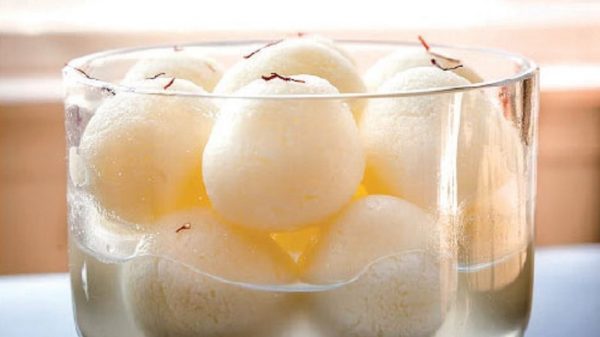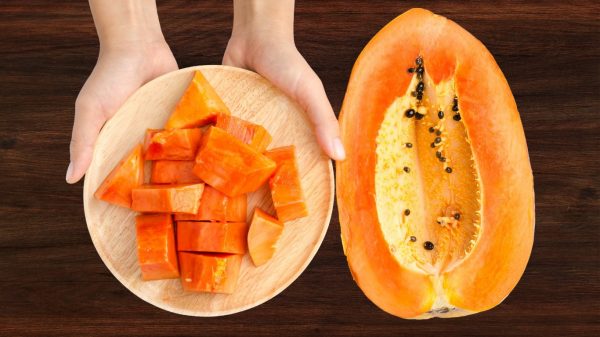Shawdesh desk:
As Bangladeshis, we have insatiable cravings for sweet food. Name a good thing in life, small and big; we need something sweet to celebrate the occasion. To share our happiness, we run to the mishtir dokan, the shops that sell sweetmeats, and spread the good news with rosogollas, kachagollas, and more. The delicious sweetmeats are usually made of milk and are stove-cooked.
It’s over a decade since I left Bangladesh; yet I miss the sweetshops that had lined up sweetmeats in various sizes and shapes. Besides the store-bought sweetmeat, we love jaggery or white sugar rice pudding. Unlike American rice pudding made with eggs, we use milk, white sugar, or jaggery without eggs. The rice pudding and rice cakes are ceremonial foods for harvesting seasons in many Bangladeshi villages.
Bangladeshis and the Sweet-toothThe introduction of sweets to our tastebuds comes early in life. When babies are born, we traditionally rush to shops to buy sweetmeat and distribute it to friends and families. Good news needs sweet tastes to go around, and newborn babies hear in tons of sweets, especially if the newborn is a male child, for the male-dominated society still holds firm. Being the torch bearer of the family still holds strong in society. However, many cultural norms have shifted, and for many people, a girl child is equally welcome; we continue to enjoy our sweet tooth with every chance we get.
For the Bangladeshi community members in the USA, the weekends and other holidays usually include friends and family, food, and fun. Again, we could hardly do without a sweet dish or two. Along with the rice cakes we make for special occasions like weddings and winter festivals, traditional sweets like rosogollas, chomchom, kalojam, and sponge-rosogolals take the cream.
When an immigrant’s son or daughter graduates, gets engaged or married, and the news is shared on Facebook, the comments would most likely have something demanding “Mishti Koi? Where is the sweet? Sweet food like cakes, puddings, or cupcakes would do as well to celebrate a happy moment. There is added respect for Bangladeshi cooks who master making traditional sweets at Bangladeshi homes.
Once that is established among the Bengali community, you are the hero of offering your expertise to significant community events, and when one thing you could bring to an invite, make everyone relish your dish. It would be like, “Oh, those rasgullas that Chanda makes are like Tangail sweets in Bangladesh. When I eat them, I feel so at home.” The special chomchom from a district called Tangail is rooted in history. The saying goes that when one eats those sweets, one can find the sugar deep inside the tastebuds even after twenty years.
Regarding distributing sweets, for some people, quality matters more than quantity; what shop is the sweets from? Is it the famous one? If the name rings a bell, the sharing holds more respect. For the weight of sweetmeats, if a groom’s family brings sweets in small amounts when going to marry, the other party will likely find reasons to label the groom’s side as misers.
There is no need to panic; traditions are traditions, they can be as steady as a rock, and life would flow around them without upturning the bases. No one wants to be the cornerstone of gossip for the new partners in life. The amount of sweets from the groom’s side from a wedding ceremony could be 10–20 lbs or more, depending on the wallet.
Now, for the Bangladeshi immigrant, the Bengali who lives in the USA, a friend or relative coming to visit from back home, would likely have a request to bring some sweets. Usually, to make things easier, the sweetshops at the airport in Dhaka pack them well, and we could carry them along with the carry-on. The cold air in the aircraft helps in keeping them fresh. One can cross the Atlantic with dreams of seeing smiles on loved ones’ faces when the sweet boxes open and watching them eat.
But wait, there is a catch in sweet meat besides the tastebuds. The sweet called rasgulla is round and, at times, a round shape compared with a zero. To sugarcoat a 0-score, people sometimes say, “Oh, so you got a rasgulla?” We would go sweet again when describing a person’s sweet personality; the way to say it in Bengali is meyeta chinir moto mishti, “The girl is sweet like sugar.” Lastly, speaking of good behaviour, we would say, “Her/his personality is like honey.” Sweetness is for Bangladesh, and the people are known for their hospitality.
_______________________________________
Tulip Chowdhury writes from Massachusetts






























Leave a Reply